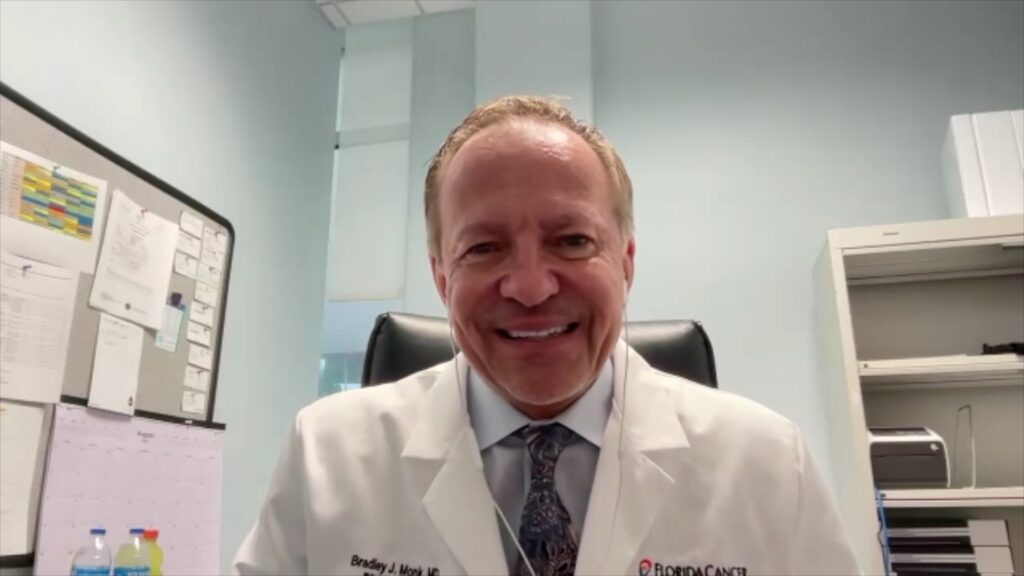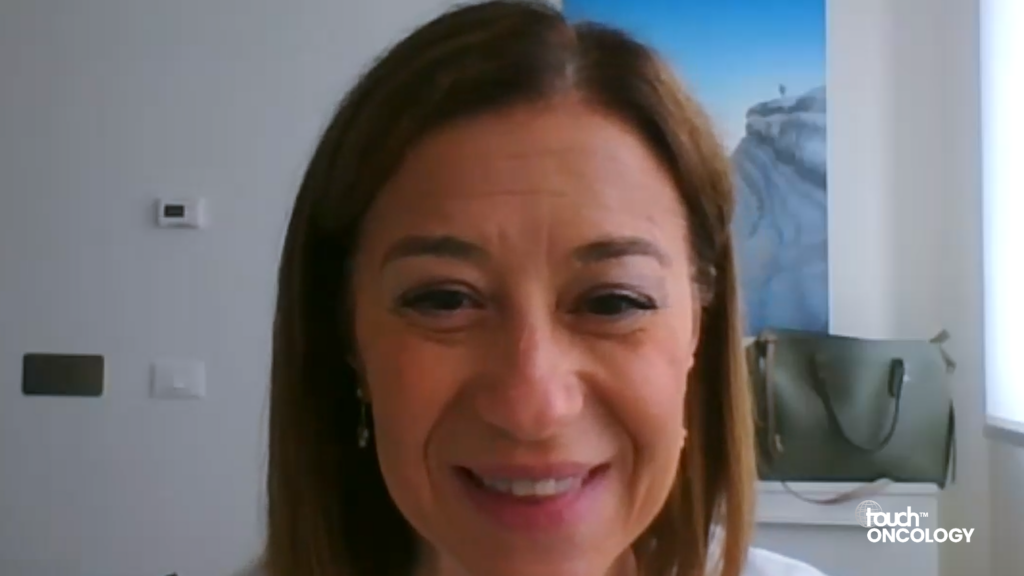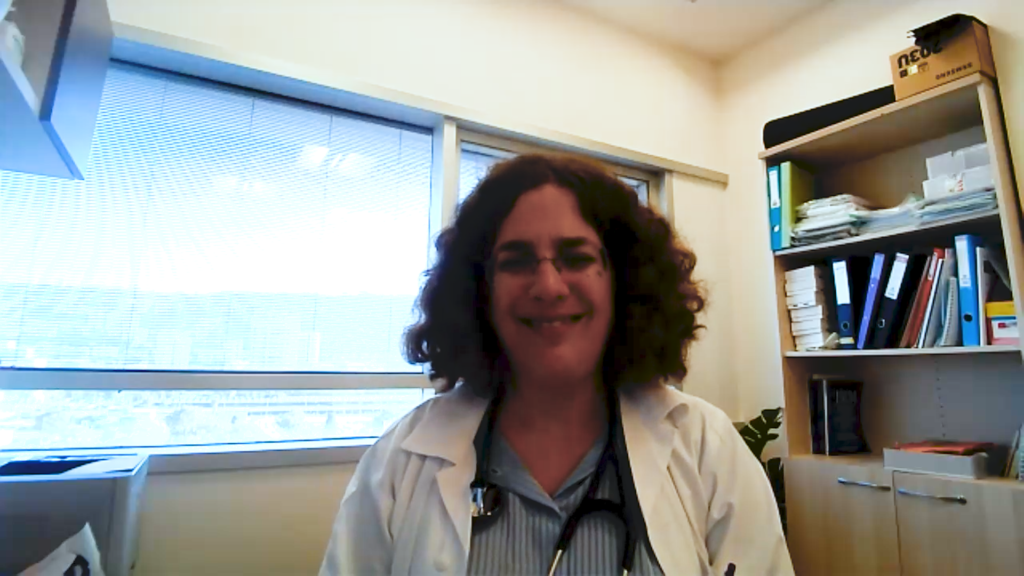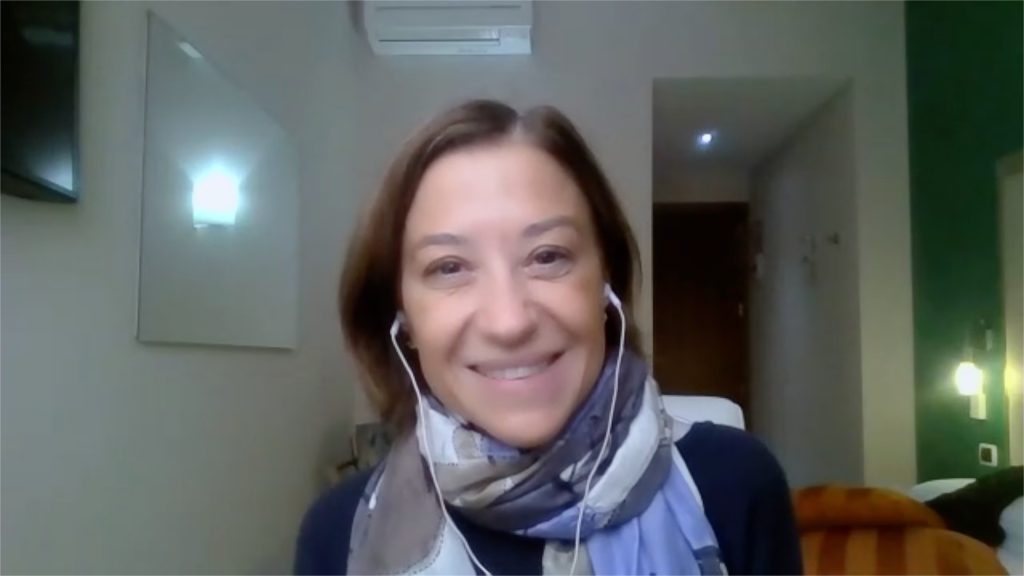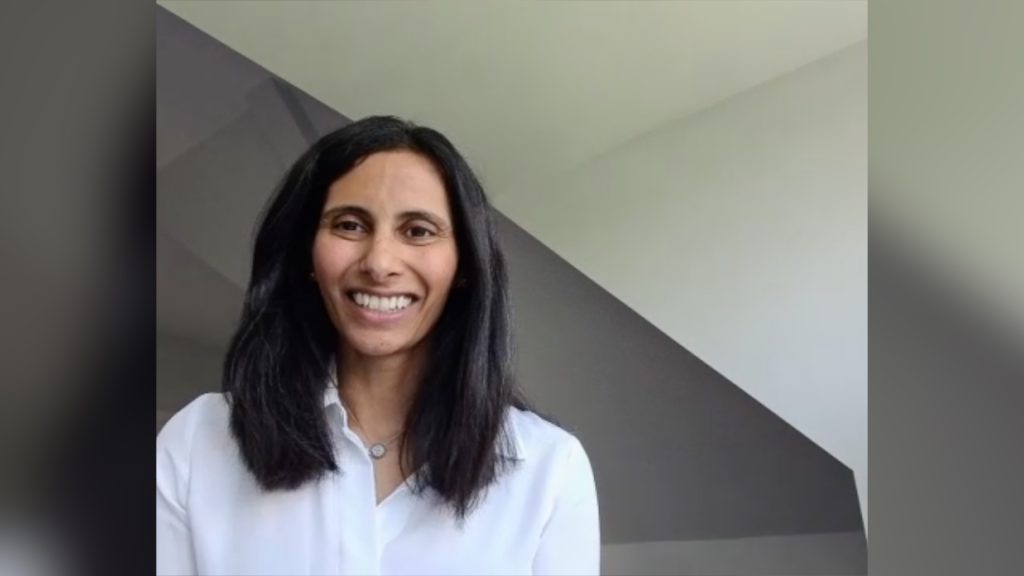The Phase III SOLO1/GOG-3004 trial (NCT01844986), investigated maintenance olaparib, which provided sustained benefit beyond the end of treatment in patients with newly diagnosed advanced ovarian cancer and a BRCA mutation. Prof. Paul DiSilvestro (Brown University, Providence, RI, USA) joins touchONCOLOGY to discuss the efficacy and safety of maintenance olaparib, and overall survival findings at 7 years. He also also discusses the clinical relevance of the 7 year time point, which provides the longest follow up for any PARP inhibitor in this treatment setting.
The abstract entitled ‘Overall survival (OS) at 7-year (y) follow-up (f/u) in patients (pts) with newly diagnosed advanced ovarian cancer (OC) and a BRCA mutation (BRCAm) who received maintenance olaparib in the SOLO1/GOG-3004 trial‘ Abstract 517O, was presented at European Society for Medical Oncology (ESMO) 2022.
Questions:
- What did the SOLO1/GOG-3004 trial teach us about the efficacy and safety of maintenance olaparib in patients with newly diagnosed advanced ovarian cancer and BRCA mutation? (0:16)
- What were the overall survival findings at 7 years and how clinically meaningful were they? (1:59)
- What is the clinical relevance of this time point? (2:32)
- How do you see the future of the use of PARP inhibitors in ovarian cancer? (3:28)
Disclosures: Paul DiSilvestro is a consultant for AstraZeneca and GSK.
Support: Interview and filming supported by Touch Medical Media Ltd. Interview conducted by Katey Gabrysch.



